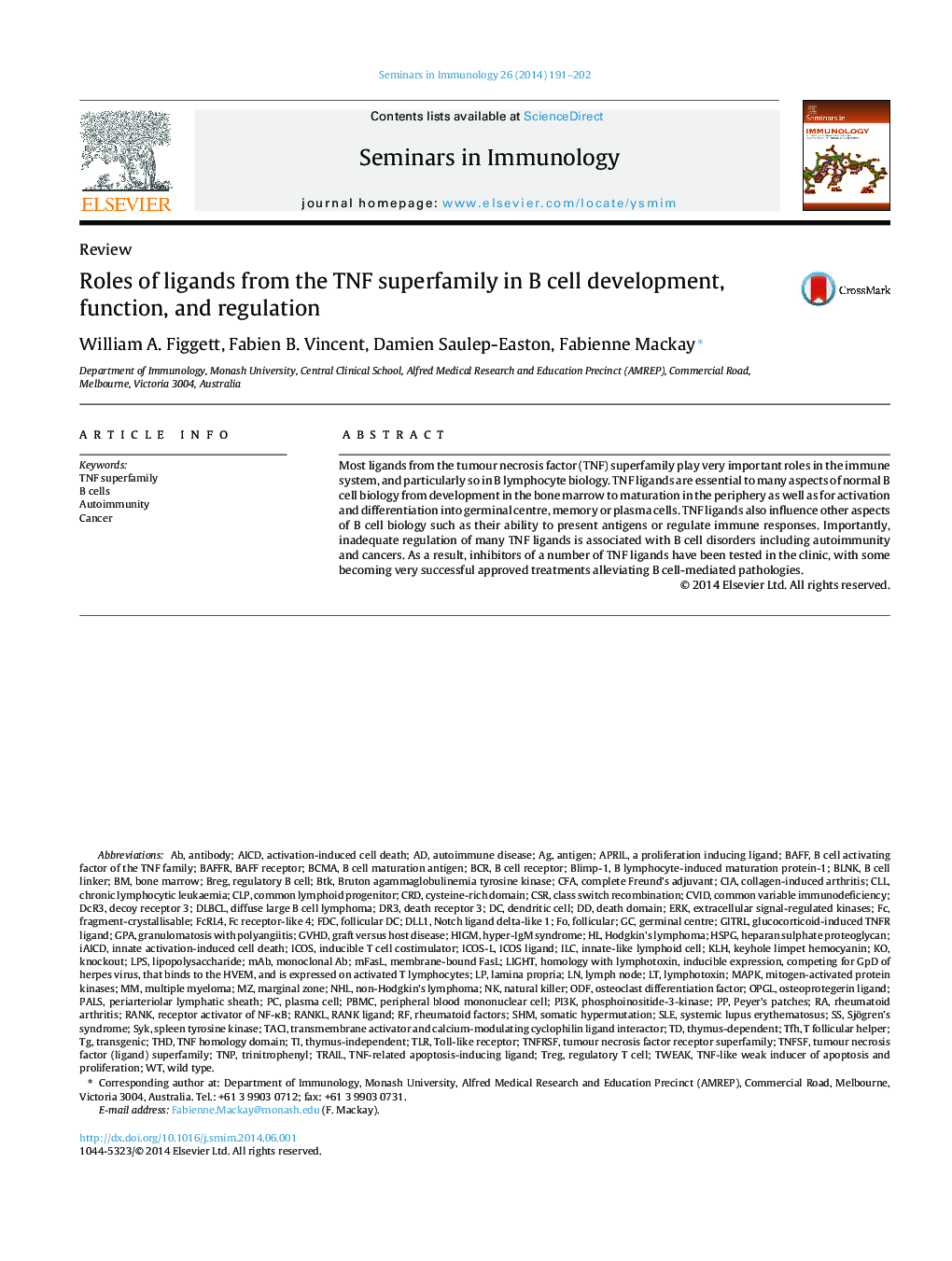| Article ID | Journal | Published Year | Pages | File Type |
|---|---|---|---|---|
| 3391292 | Seminars in Immunology | 2014 | 12 Pages |
•We review the involvement of TNF superfamily members in controlling B cells.•We consider B cell development, function, and regulation.•We discuss the involvement of TNF ligands in B cell pathologies.
Most ligands from the tumour necrosis factor (TNF) superfamily play very important roles in the immune system, and particularly so in B lymphocyte biology. TNF ligands are essential to many aspects of normal B cell biology from development in the bone marrow to maturation in the periphery as well as for activation and differentiation into germinal centre, memory or plasma cells. TNF ligands also influence other aspects of B cell biology such as their ability to present antigens or regulate immune responses. Importantly, inadequate regulation of many TNF ligands is associated with B cell disorders including autoimmunity and cancers. As a result, inhibitors of a number of TNF ligands have been tested in the clinic, with some becoming very successful approved treatments alleviating B cell-mediated pathologies.
